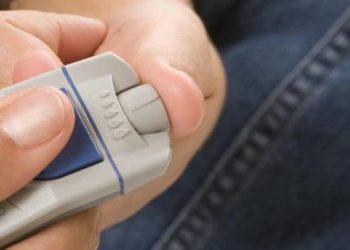Participation in nutritional assistance program linked to reduced healthcare expenditures
1. In this retrospective analysis, self-reported participation in supplemental nutritional assistance program (SNAP) was linked to reduced estimated healthcare expenditure.
2. Participants in SNAP programs were more likely to be younger, female, be of non-hispanic black ethnicity, have lower education level, and be uninsured or receiving public healthcare assistance.
Evidence Rating Level: 2 (Good)
Study Rundown: Due to increasing healthcare costs, and in particular the expenditures for public-funded health care programs, there is much interest in programs that may reduce overall healthcare spending. Food insecurity has been highlighted as a major social determinant of health, with many plausible mechanisms for the effect it may have on healthcare spending. The current study sought to evaluate how self-reported federal SNAP participation may be linked to differences in healthcare expenditures. Through analysis of participants of national health surveys, the study found that after adjusting for known confounders, participation in SNAP was linked to lower estimated healthcare expenditures.
The study highlighted the interconnected nature of social assistance programs and healthcare expenditures. The current study has numerous strengths, including its well established and validated data source, and evaluation for unknown confounders with sensitivity analyses. The main limitations of the study included the lack of data on the degree and duration of involvement with SNAP, and no evaluation of any clinical outcomes.
Click to read the study, published in JAMA Internal Medicine
Relevant Reading: Food insecurity and low self-efficacy are associated with increased healthcare utilization among adults with type II diabetes mellitus
In-Depth [retrospective cohort]: This study is a retrospective analysis using data from two national surveys, the 2011 National Health Interview Survey (NHIS) and the 2012-2013 Medical Expenditure Panel Survey (MEPS). Participants were included if they were adults (>18years), who were below 200% of the federal poverty line (an eligibility criterion for SNAP participation). The exposure (SNAP participation) and primary outcome (health care expenditure) were self-reported by participants in these surveys.
Of the 4447 participants included in this study, the 1889 who participated in SNAP were more likely to be younger, female, be of non-hispanic black ethnicity, have lower education level, and be uninsured or receiving public healthcare assistance. After adjustments for covariates, SNAP participation was associated with lower estimated annual health care expenditures (−$1409; 95%CI, −$2694 to −$125).
Image: PD
©2017 2 Minute Medicine, Inc. All rights reserved. No works may be reproduced without expressed written consent from 2 Minute Medicine, Inc. Inquire about licensing here. No article should be construed as medical advice and is not intended as such by the authors or by 2 Minute Medicine, Inc.







